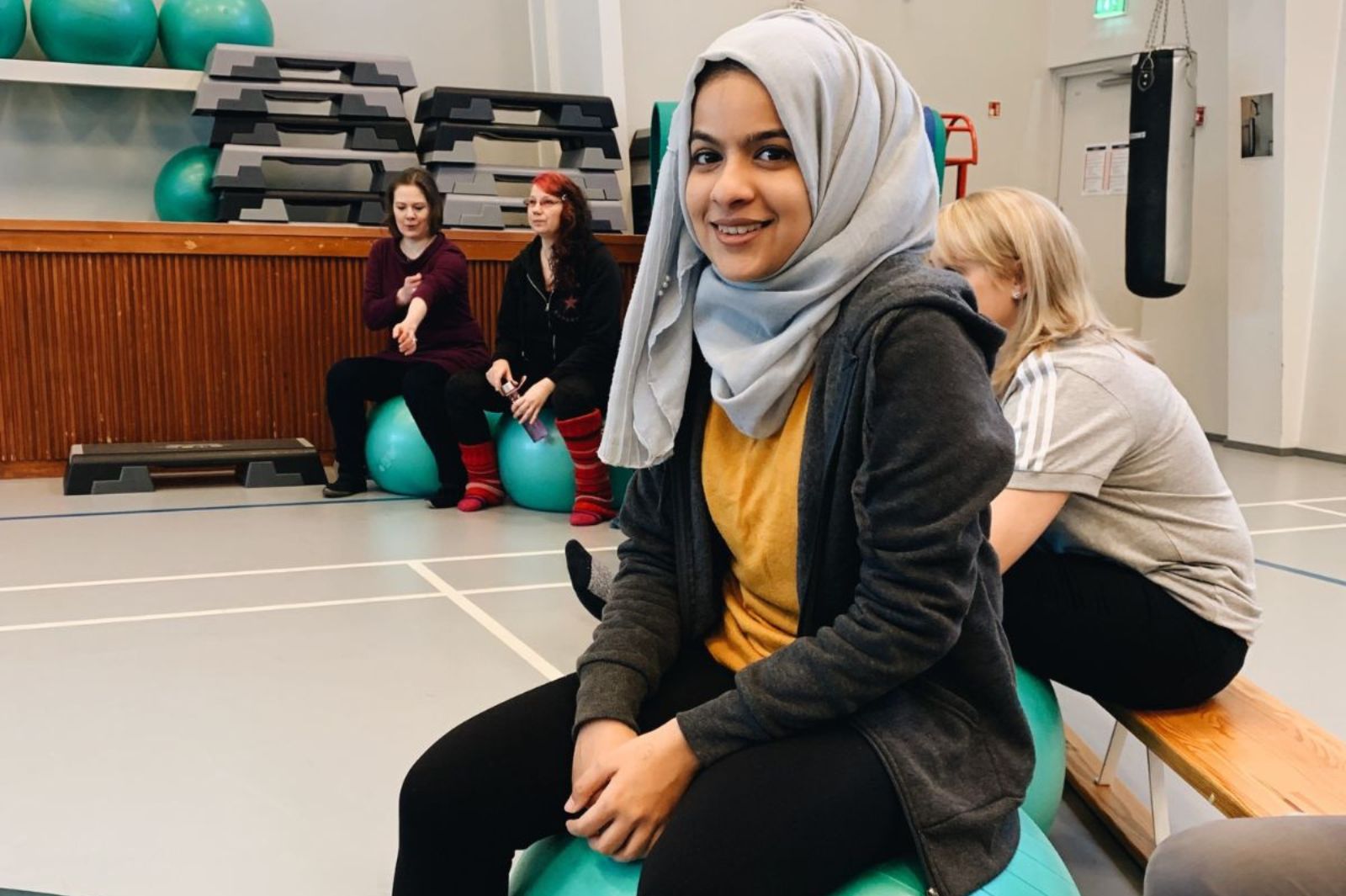Graduate ‘Masters’ misconceptions to support people with severe mental health
Date 3.02.2023

An Occupational Therapy graduate is ‘paying it forward’ for some of the most vulnerable people in society thanks to the passion she developed for good mental health at the University.
With her new job, Sayyada Master is supporting people with severe and challenging mental health issues.
Sayyada comes from Tanzania and graduated from the University degree in Occupational Therapy in 2020, gaining a First Class honours degree in the allied health profession.
Occupational therapists help people overcome the challenges of everyday life resulting from illness, trauma, and aging by engaging in daily activities or their hobbies and interests.
‘OTs’ also help people with mental health issues, something Sayyada (pictured during a UON field trip) has been interested since the start of her degree.
She says: “It felt so good to get the top grade as, before coming to Northampton, I never saw myself as academically gifted. But coming to the University and studying something I enjoyed turned that around. But when I do something, I fully commit to it.
“Back home, the culture around mental health support isn’t the same as it is here. There’s a lot of stigma around mental health. I never thought I’d go on to have a career in it.
“Occupational therapy students have clinical placements throughout their degrees that cover a wide range of areas; the ones that impacted me more were in mental health. It was so dynamic, and I made strong bonds with my patients. I felt sad when I left!
“It was no wonder that my final dissertation focused on early intervention services for psychosis and how occupational therapy engagement could benefit service users. I’m happy to say that I’m now working directly in this field.”
Sayyada works for an early intervention service in London, with people aged 14-35 with conditions that can include schizophrenia. But Sayyada is not fazed by work some of us might consider challenging, as she explains: “The stigma around mental health leads to misconceptions about people who have these serious mental health issues.
“But they are still people who, like anyone else, need support to achieve the occupations in their life that make them feel like the individual they are.
“I support a group of young people, and it’s really such a good experience working with them. I have a dual role as a care coordinator for two days a week and then working as an occupational therapist for the other three days.
“I care for 10 people who are already living in the community and want to continue with their independence, coordinating care that is in addition to my ‘OT’ role. I’m kept very busy during a typical week providing creative arts workshops, helping people with crippling anxiety cope living and working in busy London, and much more.
“With the Cost-of-Living crisis, we are combining budgeting for a household and creating nutritious meals that cost less than a fiver, so they don’t need to rely on families or the all-too-convenient takeaway meal. We also facilitate a group that combines this with budgeting.
“Just before Christmas, my family came from Tanzania to visit me, and it was wonderful for them to see I’m happy and really enjoying my new post. It’s an exciting role, with so much room to grow as a professional and my team are lovely. What I’m doing makes me feel that one I’m doing is making a difference to people’s lives; to some it might not seem like much, but to the people for whom it matters, it always seems like so much extra.”
Find out more about Occupational Therapy at University of Northampton (BSc).